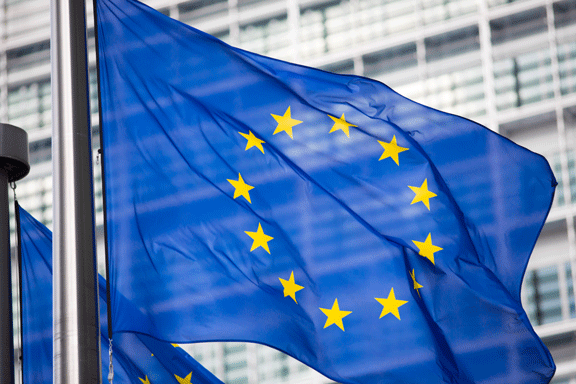With WTO in crisis, European Commission proposal aims to bypass deadlock
These are trying times for the World Trade Organization (WTO).
Keep up to date on everything going on in the world of trade and tariffs via MetalMiner’s Trade Resource Center.
Amid the blustery headwinds of trade wars and tariffs, the WTO has come in for some heat, most prominently from U.S. President Donald Trump.
Most recently, the WTO’s Appellate Body, the organization’s vital dispute settlement mechanism, has reached an impasse. With the expiration of judges’ terms last week and the U.S.’s blocking of new appointments, the WTO is not able to fill positions on the panel, leaving it at a standstill with only one member.
European Commissioner for Trade Phil Hogan last week emphasized the nature of the crisis.
“This is a regrettable and very serious blow to the international rules-based trade system, which, for the past 24 years, has relied on the WTO’s Appellate Body – and dispute settlement generally,” Hogan said.
“This is a critical moment for multilateralism and for the global trading system. With the Appellate Body removed from the equation, we have lost an enforceable dispute settlement system that has been an independent guarantor – for large and small economies alike – that the WTO’s rules are applied impartially.”
WTO Director-General Roberto Azevêdo recently said he would begin consultations aimed at resolving the impasse vis-a-vis the Appellate Body.
“A well-functioning, impartial and binding dispute settlement system is a core pillar of the WTO system,” Azevêdo said. “Rules-based dispute resolution prevents trade conflicts from ending up in escalating tit-for-tat retaliation — which becomes difficult to stop once it starts — or becoming intractable political quagmires.
“Obviously the paralysis of the Appellate Body does not mean that rules-based dispute settlement has stopped at the WTO. Members will continue to resolve WTO disputes through consultations, panels, and other means envisaged in the WTO agreements such as arbitration or good offices of the DG … but we cannot abandon what must be our priority, namely finding a permanent solution for the Appellate Body.”
Meanwhile, the European Commission has put forth a proposal aimed at addressing the crisis from Europe’s perspective (the proposal is laid out helpfully in a flow chart).
“A stronger Europe in the world implies efficient EU leadership on global trade and appropriate powers to ensure that international trade rules are respected,” European Commission President Ursula von der Leyen said. “For that reason, I start my mandate by taking swift action to strengthen our trade toolbox. Today’s proposals will let us defend our interests in these particularly uneasy times for international trade. As many European jobs are at stake, the EU needs to be equipped to ensure that our partners respect their commitments and that’s what this proposal aims for.”
According to a European Commission release, the proposal allows “the European Union to protect its trade interests despite the paralysis of the multilateral dispute settlement system in the World Trade Organization.”
As a result of the blockage of new appointments, the proposal seeks to amend the existing Enforcement Regulation rules, which date back to May 2014.
“The Commission’s proposal will enable the EU to react even if the WTO is not delivering a final ruling at the appellate level because the other WTO member blocks the dispute procedure by appealing into the void,” the Commission said.
“This new mechanism will also apply to the dispute settlement provisions included in regional or bilateral trade agreements to which the EU is party. The EU must be able to respond resolutely in case trade partners hinder effective dispute settlement resolution, for instance, by blocking the composition of panels.”
In addition, a new position of Chief Trade Enforcement Officer will be filled in early 2020.
As it stands, if a country appeals a WTO ruling in favor of the E.U., the case goes to the effectively paralyzed Appellate Body, thereby allowing the country to appeal “into the void,” as the European Commission colorfully puts it.
As such, the Commission proposes the E.U. be able to “trigger countermeasures in situations where a partner prevents the dispute from reaching the point where such authorisation could be granted.”
Looking for metal price forecasting and data analysis in one easy-to-use platform? Inquire about MetalMiner Insights today!
The proposal will be subject to the “normal legislative procedure,” and the Commission hopes the process can be concluded by mid-2020.



Leave a Reply